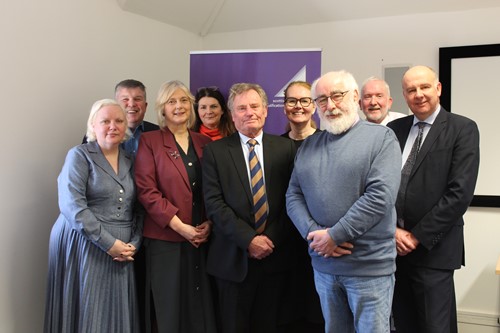When I tottered into infant school, aged 4 years and 11 months, in September 1958 I had no way of knowing that it was the start of an involvement with formal education and training in one way or another almost continually for over 65 years.
Since then I have been at various times a pupil/student, a teacher/lecturer, an examiner/assessor, an adviser, a manager, a governor, a parent; I have been located in a range of institutions focused on primary, secondary, further and higher education “levels”; I have had some experience of education and training systems on three continents; I have worked in both of the rather different systems in England and Scotland; I have observed various cycles of innovation/reform and the subsequent reforms of the reforms; I have lived through periods of rapid increases of investment in education and training, and periods of sustained cuts in funding.
So, given all the variables of time, space, level, resources, purpose, locus and ideology, I have inevitably seen a lot of variation in what “formal education and training” means and what its outcomes can be. I have seen people leaving formal education well-equipped to contribute to society and to manage their own lives, and also observed people leaving formal education hopelessly ill-prepared for work or the challenging world awaiting them.
EFFECTIVE EDUCATION
It’ll be no surprise to you if I say that, in my view, having an effective education and training system accessible to all is fundamental to the success of any economy, to the health of any society, and to the well-being (in its broadest sense) of every individual – and I would hope this is a perspective that all members of our society could sign up to and around which we could coalesce in face of the increasingly divisive “culture wars”.
In this context, I have really appreciated my time since 2016 chairing the Board of the SCQF Partnership, and seeing it continue to develop as a key component of the arrangements that help to provide a coherent system of education and training in Scotland.
You’ll be familiar with many of its uses: providing a metric by which very different types of learning can be compared in terms of their demands and thereby given due recognition; helping to establish “parity of esteem” between academic and vocational learning; providing recognition of skills and knowledge acquired in less formal educational settings; helping to develop access routes into university for those with a wider range of types of qualifications; establishing the equivalence of qualifications obtained elsewhere with those attained in Scotland; helping provide structure and transferability to employer-delivered staff training programmes; enabling former service-personnel to demonstrate the value of their skills in civilian life; avoiding duplication of learning …
respecting the framework
Fulfilling these roles requires the Framework to be respected across the education and training system, the agencies that support them, government, employers, learners, and parents and carers of learners.
Maintaining and promoting its integrity and functionality in a fast-changing world, and a rapidly-evolving landscape of education and training, is no easy task.
The small team at SCQF make a big impact and I have huge respect for all the members of the team for the diligence, creativity and flexibility that they apply to their work of supporting this essential national asset.
The Board members who oversee the work of the SCQF team in maintaining and developing the Framework are drawn from a broad range of sectors of education and training but have been united in their determination to preserve and promote the framework. As I step down from my role as Chair, my thanks go to all of them for the professionalism, commitment and good humour that has characterised their deliberations and decisions.

From left, Marie Hendry of College Development Network; John Evans, the SCQFP board's new chair; Pauline Radcliffe, chief executive of the SCQFP; Kathryn O’Loan from QAA Scotland, outgoing SCQFP chair Rob Wallen; Fiona Robertson of the SQA, Professor Malcolm Foley, chair of the SCQFP’s Quality Committee; Stuart McKenna of the Scottish Training Federation; and Alastair Sim of Universities Scotland
Sign up for our newsletter
Receive our latest news, workshop alerts and updates to our helpful resources via email.